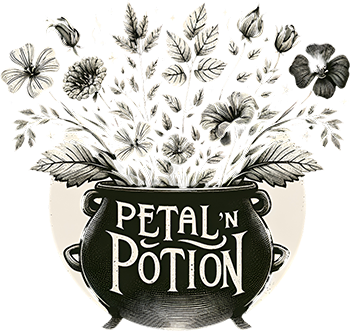L e m o n B a l m
Lemon balm (Melissa officinalis) is a perennial herb in the mint family, native to southern Europe and the Mediterranean region.
Known for its pleasant lemon scent and flavor, it has been used for centuries in traditional medicine to
alleviate stress, improve sleep, and support digestive health.
Benefits
- Anxiety Relief: Helps alleviate symptoms of anxiety, stress, and mild depression.
- Sleep Aid: Promotes relaxation and improves the quality of sleep.
- Digestive Health: Supports healthy digestion and alleviates symptoms such as bloating, indigestion, and gas.
- Cognitive Function: May improve memory, concentration, and overall cognitive function.
- Antioxidant Properties: Provides antioxidants that protect cells from oxidative stress and damage.
- Anti-Inflammatory: Reduces inflammation, benefiting conditions like arthritis and other inflammatory diseases.
- Immune Support: Enhances immune function and helps the body fight off infections.
- Antiviral Properties: Exhibits antiviral effects, particularly against cold sores caused by the herpes simplex virus.
- Pain Relief: Alleviates pain associated with various conditions, including headaches and menstrual cramps.
- Skin Health: Benefits skin conditions due to its antimicrobial and anti-inflammatory properties.
Active Compounds
- Rosmarinic Acid: The primary active compound responsible for lemon balm’s antioxidant and anti-inflammatory properties.
- Eugenol: Contributes to the plant’s analgesic and antimicrobial effects.
- Tannins: Known for their astringent and antioxidant properties.
- Flavonoids: Provide additional antioxidant protection and support overall health.
- Volatile Oils (including Citral, Geraniol, and Linalool): Offer calming, antimicrobial, and antiviral benefits.
Who Should Avoid This
- Individuals with Allergies: Those allergic to lemon balm or related plants should avoid it.
- Pregnant and Nursing Women: Consult a healthcare provider before use, especially in large amounts.
- Individuals with Thyroid Conditions: Use caution and consult a healthcare provider.
- Individuals with Gastrointestinal Disorders: Use caution if you have gastrointestinal conditions.
- Individuals on Medication: Particularly those taking sedatives, thyroid medications, or antiretrovirals should consult a healthcare provider to avoid interactions.
- Children: Consult a healthcare provider before giving lemon balm in medicinal doses to young children.
Warnings
While lemon balm offers numerous health benefits, some precautions and potential side effects should be considered:
- Allergic Reactions: Can cause allergic reactions in some individuals.
- Pregnancy and Breastfeeding: Consult a healthcare provider before use, as high doses may not be safe.
- Thyroid Issues: May affect thyroid function; consult a healthcare provider if you have thyroid conditions.
- Gastrointestinal Issues: High doses may cause stomach upset or diarrhea in some individuals.
- Interactions with Medications: May interact with certain medications, including sedatives, thyroid medications, and antiretrovirals.
Usage Guidelines
Lemon balm can be used both short-term and long-term, depending on the condition being treated. For acute issues such as relieving anxiety or improving sleep, it is typically used until symptoms improve. For ongoing benefits such as digestive health, cognitive enhancement, or general wellness, longer-term use may be appropriate but always under the guidance of a healthcare professional. Always consult with a healthcare provider to determine the correct dosage and duration for your specific needs.
